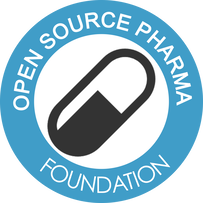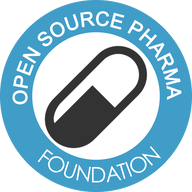ABOUT
|
The Open Source Pharma Foundation is a global non-profit organization with centers in Bangalore, Paris, and New York City. We seek to discover new drugs, and a new way to discover drugs.
Our aim is to develop affordable new therapies in areas of great health need, by using open source principles derived from the software industry. We leverage exponential advances in computing power and collaborative technologies; alternative approaches to intellectual property; and the vast reach of the generics industry. In brief, open source pharma is: 1) crowdsourced and computer-driven drug discovery; 2) IT-enabled clinical trials with open data and crowdsourcing; and 3) generics manufacture Through nurturing the open source pharma global movement, building platforms for international scientific collaboration, convening global conferences, and conducting open source-enabled pharmaceutical research, we are working towards an alternative, end-to-end pharmaceutical system. In partnership with the Government of India’s National Institute for Research in Tuberculosis, we are currently in a phase 2B multicentric trial exploring the efficacy of metformin, a generic diabetes drug, as an adjunct therapy for tuberculosis. |
OSPF is a supporter of the Open Source Pharma Movement and Community
|
VisionMedicines for all
|
MissionUsing open source principles, and by nurturing a movement, we seek to create affordable new medicines in areas of great health need
|
History of OSPF
The idea of applying open source principles derived from the software industry to the pharmaceutical industry, and to the process of drug discovery, has a long history. The pioneers must be acknowledged. Early papers include Can Open-Source R&D Reinvigorate Drug Research? (2006) in Nature by Bernard Munos. Pioneering institutionalizations include the government of India’s Open Source Drug Discovery (OSDD), created by Chief Mentor Professor Samir K. Brahmachari, which has assembled over 50 Indian universities, carried out over 100 research projects, created a large community of students, and identified more than 60 potential drug targets of tuberculosis. They also include Open Source Malaria (OSM), founded by Professor Matthew Todd. In 2013, the Tata Trusts funded the TATA CSIR-OSDD Fellowship (TCOF), providing open source drug discovery fellowships to students and young researchers conducting research for neglected diseases through methods of crowdsourcing.
Early meetings and conferences include a WHO meeting in London. At global conferences in 2014 at the Rockefeller Foundation Bellagio Center in Italy (OSP1) and in 2015 in Rauischholzhausen, Germany (OSP2), the concept was further vetted. In 2015, the Tata Trusts decided to expand its activities in the area. In 2018, with funds received from the Tata Trusts, which support philanthropic work in India, the OSPF commenced operations. A third global conference was held in Paris in 2019 (OSP3). OSPF established a center in Paris later in 2019. A meeting on open source approaches to pharma R&D was held by the Harvard Global Health Institute in December 2019, and by the Harvard Global Health Institute and OSPF in March 2020. OSPF-USA was established in 2020, located in New York City. OSPF seeks to expand and nurture the global open source pharma community and movement, to build an open source innovation model for the pharma sector, and to actually try to deliver affordable new therapies in areas of great health need, particularly for infectious diseases affecting the marginalized communities around the world.
Early meetings and conferences include a WHO meeting in London. At global conferences in 2014 at the Rockefeller Foundation Bellagio Center in Italy (OSP1) and in 2015 in Rauischholzhausen, Germany (OSP2), the concept was further vetted. In 2015, the Tata Trusts decided to expand its activities in the area. In 2018, with funds received from the Tata Trusts, which support philanthropic work in India, the OSPF commenced operations. A third global conference was held in Paris in 2019 (OSP3). OSPF established a center in Paris later in 2019. A meeting on open source approaches to pharma R&D was held by the Harvard Global Health Institute in December 2019, and by the Harvard Global Health Institute and OSPF in March 2020. OSPF-USA was established in 2020, located in New York City. OSPF seeks to expand and nurture the global open source pharma community and movement, to build an open source innovation model for the pharma sector, and to actually try to deliver affordable new therapies in areas of great health need, particularly for infectious diseases affecting the marginalized communities around the world.



